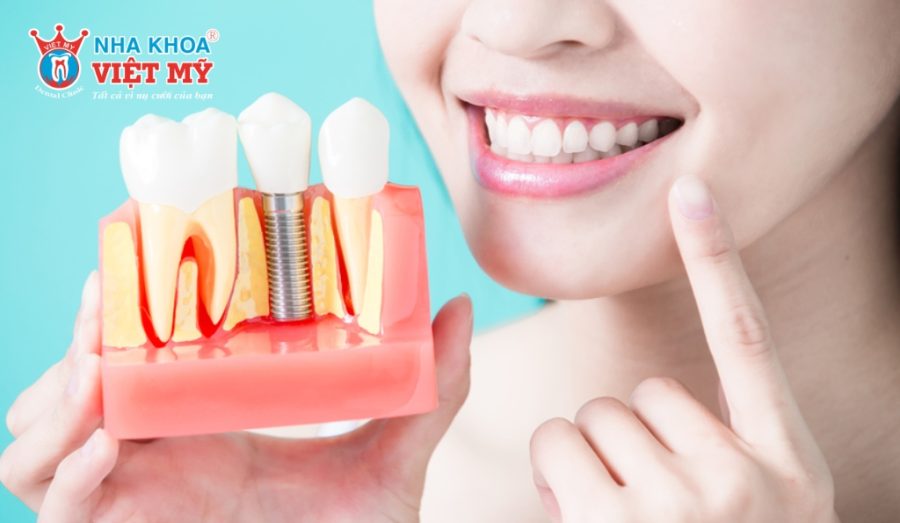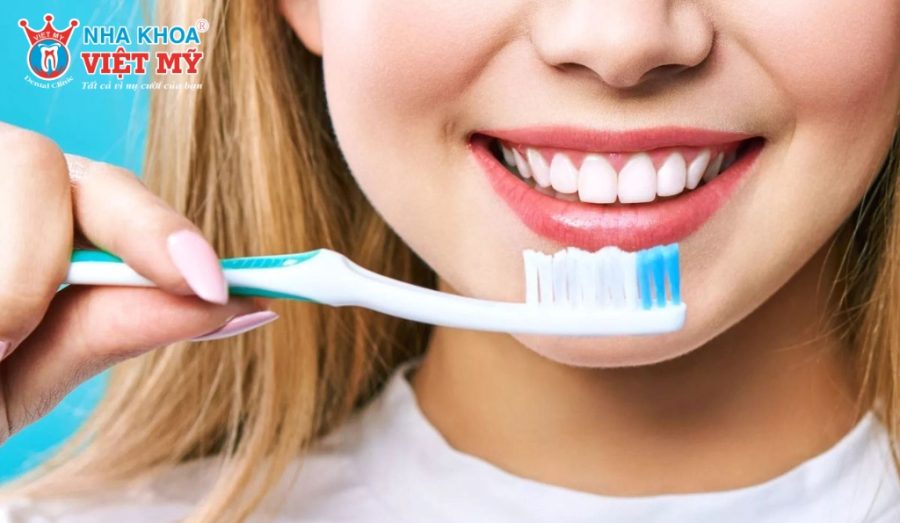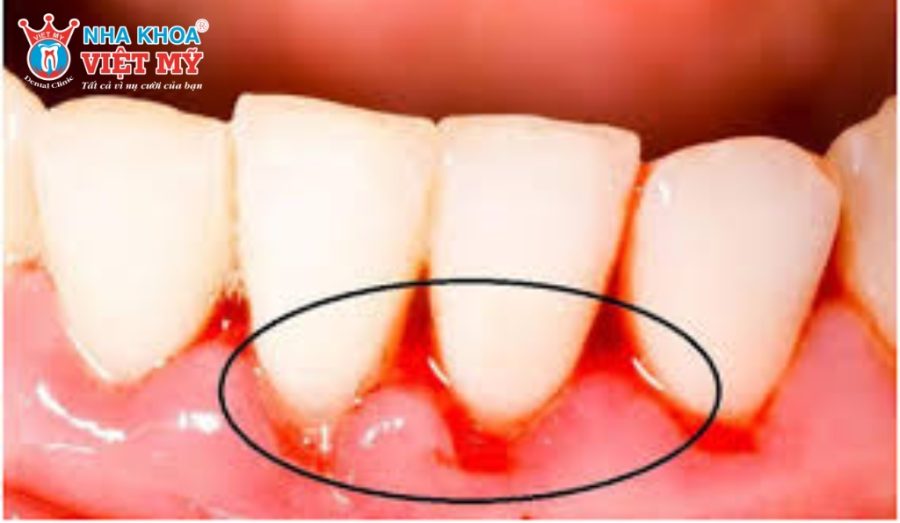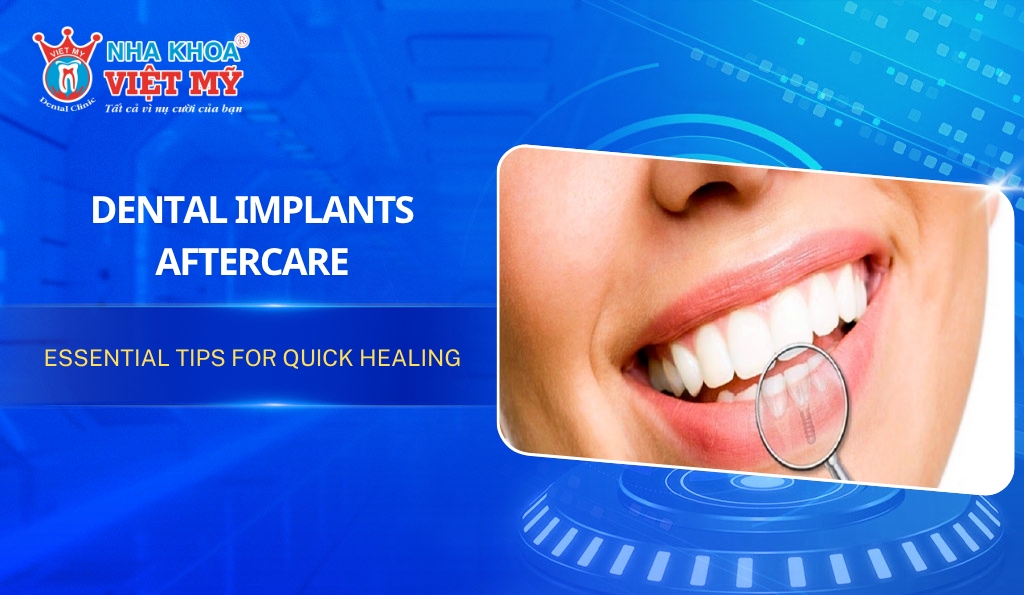What Is Dental Implant Aftercare and Why It Matters?
Dental Implant Aftercare refers to the comprehensive set of instructions and practices followed immediately after the surgical placement of a dental implant and throughout the critical healing period.
This care regimen is designed to protect the surgical site from infection and trauma. It also helps manage common post-operative symptoms like swelling and minor bleeding.
The implant success depends heavily on a biological process called osseointegration, where your jawbone grows and fuses directly onto the implant surface.
Diligent Dental Implant Aftercare is paramount because it creates the optimal, undisturbed environment necessary for this fusion to occur successfully. Neglecting care can lead to infection, delayed healing, or, in severe cases, implant failure.
See more: Top 9 Best Dental in Vietnam for Expats and Tourists

Dental Implant Aftercare Instructions for the First 48 Hours
The initial two days following surgery are the most critical for controlling bleeding, managing pain, and minimizing swelling. Strict adherence to these instructions is non-negotiable.
⚠️ Quick Action CTA: If you experience abnormal swelling or severe, unmanaged pain, call Viet My Dental Clinic immediately at Hotline 1900 636 734 or direct follow-up care from your treating doctor.
Managing Bleeding
It’s normal to experience slight bleeding or oozing for the first 24 hours. To manage this, gently bite down on the gauze pad placed over the surgical site for about 30 to 45 minutes.
If the bleeding persists, replace the gauze with a fresh one or a moist tea bag, as the tannic acid helps clot the blood. Avoid excessive spitting or rinsing, as this can dislodge the blood clot, leading to a painful condition known as “dry socket.”
Controlling Swelling and Pain
Swelling is a typical inflammatory response and usually peaks around 48 to 72 hours. Apply an ice pack or a cold compress to the cheek over the surgical area for 15 minutes on and 15 minutes off during the first 24 to 36 hours.
See more: Dental tourism in Vietnam: Costs, clinics and tips

Take prescribed pain medication as directed, preferably before the local anesthetic completely wears off. It’s vital to stick to the dosage schedule to keep discomfort manageable.
Rest and Activity
Rest is fundamental to quick healing. Avoid strenuous activity or heavy lifting for at least the first 48 hours. When lying down, elevate your head with extra pillows to help reduce swelling.
Avoid touching the surgical site with your fingers or tongue to prevent irritation and the introduction of bacteria.
Eating and Drinking After Dental Implant Surgery
Proper nutrition is essential for healing, but you must be careful about what you consume to protect the surgical area.
What to Eat
For the first few days, your diet should consist exclusively of soft, cool, or lukewarm foods. These include yogurt, pudding, mashed potatoes, well-blended soups (not hot), smoothies (without using a straw), and soft-scrambled eggs.

Gradually introduce slightly firmer foods as your comfort level improves, but continue to avoid crunchy or chewy items for at least a week or as advised by your dentist.
What to Drink
Stay well-hydrated by drinking plenty of water. Lukewarm herbal tea is also acceptable. Crucially, avoid drinking through a straw as the sucking motion can dislodge the crucial blood clot, impairing your Dental Implant Aftercare and leading to complications.
Avoid hot beverages like coffee or very hot tea, as the heat can dissolve the blood clot and increase bleeding.
Oral Hygiene Tips for Dental Implant Aftercare
Maintaining a clean mouth is critical for preventing infection around the new implant site. However, the cleaning process must be done gently and cautiously.
How to clean around the implant site
After 3-4 days, start gently cleaning the implant area using a soft-bristled toothbrush, avoiding direct pressure on the incision line. Gently swish and drip out the prescribed antimicrobial mouth rinse, do not forcefully spit.

When to Start Brushing and Rinsing
Do not brush or rinse vigorously on the day of the surgery. The day after the procedure, you may begin very gentle rinsing.
Start brushing the rest of your mouth as usual, but avoid the surgical site for the first few days. Once the blood clot is stable, you can begin cleaning around the implant.
Recommended Tools: Soft Toothbrush, Interdental Brush, Saltwater Rinse
- Soft Toothbrush: Essential for the first few weeks to prevent trauma to the gums.
- Saltwater Rinse: A homemade saltwater rinse (half a teaspoon of salt in a glass of warm water) is excellent for soothing and healing. Rinse gently 2-3 times a day, especially after meals.
- Interdental Brush: Once the initial healing is complete (usually after a week), an interdental brush or water flosser on a low setting may be recommended for detailed cleaning around the abutment.
Habits to Avoid During Recovery
Certain habits can significantly compromise the healing process and must be strictly avoided as part of your Dental Implant Aftercare protocol.
Smoking and Alcohol
Smoking is one of the biggest risks to implant success. Nicotine constricts blood vessels, restricting the necessary blood flow to the surgical site and severely impairing the osseointegration process. Patients should avoid smoking completely for at least one week before and two weeks after the surgery, ideally longer.
Doctor’s Note: The required time for abstaining from tobacco can range from 1-3 weeks depending on your bone condition and the surgery complexity. Please confirm the exact duration with your treating doctor at Viet My Dental Clinic.
Alcohol can interfere with prescribed medications (especially pain killers) and delay healing. Avoid consuming alcohol for at least the first 72 hours, or while you are taking prescription medication.

Heavy Exercise or Pressure on Implant Site
Any activity that increases your heart rate and blood pressure can lead to post-operative bleeding and swelling. Avoid heavy exercise (running, weightlifting) for at least a week. Stick to light activities.
Do not put any pressure on the implant site, such as touching it or sleeping directly on that side of your face.
Chewing on Implant Area
You must avoid chewing directly on the implant site until your dentist gives you clearance. Chewing places immense pressure on the newly placed implant, which can prevent the implant from securely fusing with the bone.
How Long to Avoid
As a rule of thumb, soft foods and avoiding strenuous activity are typically required for 1 to 2 weeks. Smoking should be avoided for a minimum of 2 weeks. Always follow the specific timeline provided by your dental professional, as recovery times vary per individual.
Signs of Problems – When to Contact Your Dentist
While minor discomfort is normal, certain symptoms indicate a potential complication that requires immediate professional attention. Vigilance is a crucial part of proper Dental Implant Aftercare.
Persistent Bleeding or Severe Pain
If the bleeding continues profusely and is not controlled by gentle pressure or gauze after several hours, you must contact your dentist immediately.
Similarly, if the pain suddenly worsens a few days after the surgery, or if the pain is severe and not relieved by the prescribed medication, it may signal an underlying issue.

Fever or Infection Symptoms
A small amount of inflammation is expected, but signs of infection are serious. Contact your clinic if you experience any of the following:
- Fever (over 101°F or 38.3°C).
- Foul taste or odor emanating from the surgical site.
- Excessive, yellowish, or greenish pus discharge.
- Hard, painful swelling that continues to worsen after the first 3-4 days.
Implant Movement or Loosening
A properly placed dental implant should not move. If you feel any noticeable wiggling, rocking, or loosening of the implant, the temporary cap, or the healing abutment, it is an emergency. Contact your dentist immediately, as this may be a sign of early implant failure or a loose part that needs to be tightened. Do not attempt to fix or tighten it yourself.
The success of your dental implant depends on meticulous Dental Implant Aftercare. By following these doctor-verified instructions-maintaining hygiene, avoiding harmful habits, and watching for warning signs-you ensure quick, complication-free healing and proper integration. For any concerns or required follow-up, contact Viet My Dental Clinic. Call our hotline for direct support: 1900 636 734

Bác sĩ Nguyễn Văn Thuyền tốt nghiệp từ trường Đại học Y Dược Thành phố Hồ Chí Minh, một trong những cái nôi đào tạo y khoa hàng đầu cả nước. Với nền tảng kiến thức vững chắc và sự đam mê với nghề, bác sĩ Thuyền chịu trách nhiệm kiểm duyệt và đảm bảo những thông tin trên website chính xác.











cho dòng răng toàn sứ
1900 636 734
cskh@nhakhoavietmy.com.vn
Ưu đãi đến 35% dòng răng toàn sứ
1900 636 734
cskh@nhakhoavietmy.com.vn
Bài viết liên quan:
Răng sứ HT Smile có mấy loại và giá bao nhiêu tiền?
Tìm hiểu răng sứ Emax và những ưu điểm nổi bật hiện nay
Có nên bọc sứ để tăng tuổi thọ răng lấy tủy không?